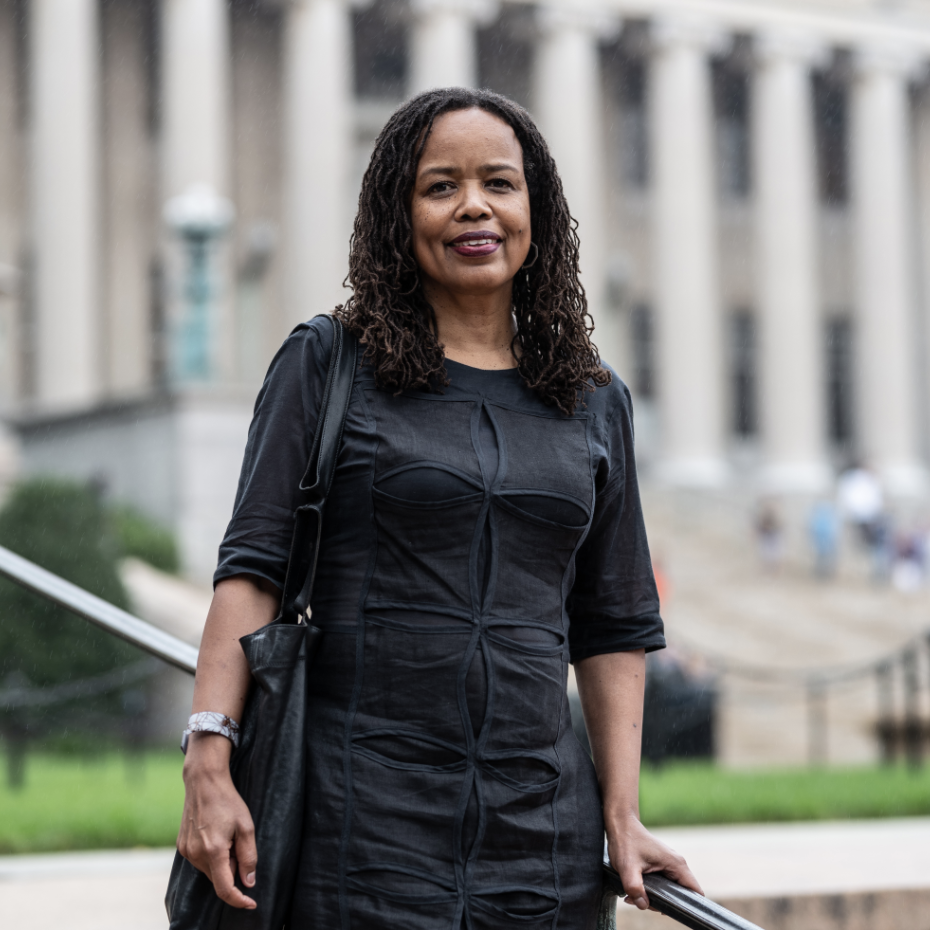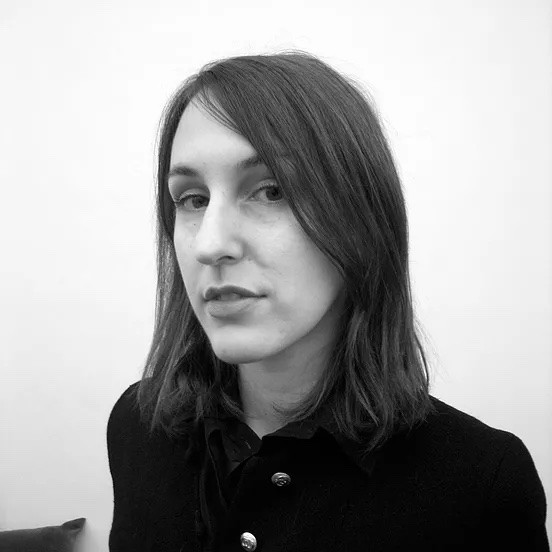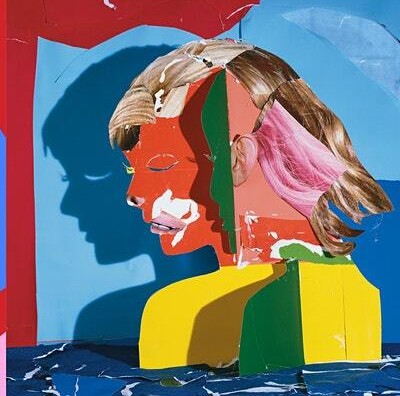Saidiya Hartman. Photo: John D. and Catherine T. MacArthur Foundation The 2021 Pulitzer Prizes have been announced. The New York Times’ Wesley Morris won for criticism, Louise Erdrich for the novel The Night Watchmen, Marcia Chatelain for the historical work Franchise: The Golden Arches in Black America, Les Payne and Tamara Payne for the biography The Dead Are Arising: The Life of Malcolm X, and Natalie Diaz for the poetry collection Postcolonial Love Poem. Scribner’s Nan Graham has purchased the memoir Both/And: A Life in Many Worlds by longtime Hillary Clinton aide Huma Abedin. According to the publisher, the
Elizabeth Schambelan. Photo: The Rona Jaffe Foundation Elizabeth Schambelan writes about the January 6 Capitol breach in an essay for Triple Canopy. She discusses the Three Percenters, nation-states and fraternity, “the far-right’s Sparta fetish,” and the difficulty of making sense of it all: “Apparently, I’m overreading, overthinking, but how could I not? The American right has undergone an occult turn, communicating in esoteric code, hand gestures, arcane glyphs, abbreviations as forbiddingly cryptic as the tetragrammaton. A hermeneutics that pushes interpretation only as far as parsimony allows seems unlikely to penetrate the rococo bramble of right-wing semiotics. What if to
Kate Zambreno. Photo: © Heather Stern. Alex Press and Jacobin magazine have a new podcast, Primed, about Amazon. The show will cover the online retailer’s operations, working conditions, and its effects on society, the environment, culture, politics, and more. For more on Amazon’s role in furthering inequality, see Press’s review of Fulfillment: Winning and Losing in One-Click America by Alec MacGillis in the Spring issue of Bookforum. This afternoon at 3pm EDT, McNally Jackson bookstore will host Kate Zambreno to discuss her new book To Write As If Already Dead, with Bhanu Kapil. The book circles Zambreno’s attempts to
Tsitsi Dangarembga. Photo: Hannah Mentz Tsitsi Dangarembga, author of This Mournable Body and Nervous Conditions, has been awarded the PEN Pinter Prize, which celebrates authors of a significant body of work which examines the world with, in Harold Pinter’s words, an “unflinching, unswerving” gaze and “fierce intellectual determination.” Previous winners include Tom Stoppard, Salman Rushdie, and Chmamanda Ngozi Adichie. Michelle Zauner’s novel Crying in H Mart is being adapted for film. Zauner, who also makes music using the name Japanese Breakfast, will contribute a soundtrack. Leo Robson writes about the late theorist J. Hillis Miller’s contributions to literary deconstruction
Larissa Pham. Photo: Adalena Kavanagh The New Yorker Union is preparing to strike, after more than two years of bargaining. On their website, union members explain why they are ready to strike, and how readers, subscribers, and freelancers can hold the picket line if the union does strike. ProPublica has begun publishing a new series based on the tax records of billionaires. The first installment shows how wealthy Americans like Warren Buffet, Jeff Bezos, Michael Bloomberg, and Elon Musk avoid paying taxes. ProPublica writes that in the coming months it will take an in-depth look at how high earners
Kiese Laymon A number of star reporters at the New York Times have joined forces to try to prevent the NewsGuild of New York from raising the paper’s union dues. NewsGuild says that without dues increases, it will face financial disaster, and will no longer be able to offer the legal and staffing services it has provided in the past. Buzzfeed reports that a “contingent of more than 100 New York Times staffers signed a letter to the union opposing its proposals for raising cash. That petition, which has been shared widely in media circles, included the signatures of
Austrian poet Friederike Mayröcker has died at the age of ninety-six. Writing for the Poetry Foundation last year, Ryan Ruby gave an insightful overview of Mayröcker’s life and work. Born in Vienna in 1924, Mayröcker has written well over one hundred books, with only a small fraction of those available in English translation. Earlier this year, the Paris Review published an excerpt from The Communicating Vessels, published by Public Space Books. At the New York Times, Alexandra Alter and Jennifer Schuessler report on what will become of Philip Roth’s private archive. In the weeks since Blake Bailey, Roth’s sole
David Diop According to Politico, editorial employees of The Atlantic are unionizing with the NewsGuild of New York. The union wants to institute a compensation floor of $60,000, healthcare, a flexible time-off policy, and twenty weeks of paid parental leave. McKay Coppins reports on the difficulty conservative book publishers are having with Joe Biden as president, writing that the market for anti-Biden books is “ice cold.” David Diop’s novel At Night All Blood Is Black, translated by Anna Moschovakis, has won the International Booker Prize. For more on Diop, see this profile from May. CNN Business reports on the
Pamela Sneed. Photo: Patricia Silva The winners of the 2021 Lambda Literary Awards were announced last night. Among the awardees are Jenn Shapland in the Lesbian Memoir/Biography catagory for My Autobiography of Carson McCullors, Pamela Sneed in Lesbian Poetry for Funeral Diva, and Zeyn Joukhadar in Transgender Fiction for The Thirty Names of Night. In addition, special honors were given to Sarah Gerard, Brontez Purnell, T Kira Madden, and others. At the London Review of Books, Joanne O’Leary writes about Mabel Loomis Todd and her daughter, Millicent Todd Bingham. Mabel Loomis Todd had an affair with Emily Dickinson’s brother
Join us tonight at 7pm EDT to celebrate the release of our new issue. For “Truth or Dare: On Authenticity, Risk, and the Future of Fiction,” Lauren Oyler, Ed Park, Omari Weekes, and Jo Livingstone will discuss risks writers should take now, books that demonstrate innovative approaches to authenticity, comedy, irony, sincerity, and more. The event is free; please RSVP here. At LitHub, Rachel Kushner talks to Franciso Goldman about his new novel, Monkey Boy. For the New Yorker, Victor Luckerson writes about Mary E. Jones Parrish and Eddie Faye Gates, two Black women authors who told the story
Kevin Young. Photo: Melanie Dunea New York Times critic Jennifer Szalai reviews Scott Ellsworth’s The Ground Breaking, a new history of the Tulsa Massacre. The massacre took place in 1921, when white mobs killed the Black inhabitants of an entire block in the city’s Greenwood district and demolished their homes. Ellsworth details how the story has been covered up and suppressed; “Where the history of the massacre wasn’t obscured, [Ellsworth] found it distorted, deformed by conspiracy theories or attempts to both-sides it,” Szalai writes. Poet and director of the Smithsonian’s National Museum of African American History and Culture Kevin
Rosa Brooks Eric Carle, the picture-book author with more than seventy titles to his name, has died at the age of ninety-one. According to the New York Times, Carle sold more than 170 million copies of his books. In a 1995 interview, he talked about how he turns small ideas into full-fledged works: “You think about it, you forget about it, you obsess about it. I get depressed a lot, and that seems to precipitate things. My wife sees my mood darken and says, ‘Uh-oh, you’re ready to do a book.’” In the same article, Carle observes how he
Roxane Gay Roxane Gay is starting an imprint with Grove Atlantic. Roxane Gay Books will publish three books per year, focusing on underrepresented voices. Gay told the Times that she will be accepting submissions this summer from writers with or without agents: “There are so many barriers and so many gates. Let’s take them down.” Grove is also starting a paid one-year fellowship program, a “crash course” in publishing open to applicants outside traditional publishing circles. Faculty leaders from the University of North Carolina at Chapel Hill are urging their board of trustees to vote on Nikole Hannah-Jones’s tenure
Zakiya Dalila Harris. Photo: © Nicole Mondestin Photography. The New York Times profiles Zakiya Dalila Harris, the author of The Other Black Girl, based in part on Harris’s experiences working in publishing. The book, which is also being developed as a TV series for Hulu, started a bidding war with fourteen publishers vying for the title. Harris says she was inspired by Jordan Peele’s Get Out: “Talking about white liberals in this way seemed so new to me at the time, and I really wanted to do something similar with the book.” This fall, Haymarket Books will publish a
Kerry Howley Kerry Howley—author of Thrown, about the time she spent among mixed martial artists—is joining New York magazine as a features writer. New York has also hired Justin Miller as its new news director and Ryu Spaeth (currently at the New Republic) as a deputy editor. Khadija Abdalla Bajaber’s The House of Rust, which won the first Graywolf Africa Prize, is scheduled for publication in October. Doubleday has signed a two-book deal with Stacey Abrams. Both of the forthcoming books are political thrillers featuring the character Avery Keene, the hero of Abrams’s best-seller While Justice Sleeps (also Doubleday).
Rumaan Alam For The Nation, Chalay Chalermkraivuth interviews Pop Song author Larissa Pham about desire, survivorship, and the importance of vulnerability to her writing. Pham sees the rise in defensive posturing in criticism and on social media—“a relatively recent phenomenon”—as a sign that stakes are missing from the argument. “Stakes are what make you care about something. They are what allow you to know what people value. So showing my stakes is what I can do to push back against that.” Jewish Currents assistant editor Joshua Leifer is writing a book on “the state of American Jewish identity as
Valeria Luiselli. Photo: Diego Berruecos Valeria Luiselli’s Lost Children Archive has won the Dublin Literary Award. The winner is selected from a group of books nominated by libraries around the world. Luiselli’s novel was chosen by a library in Barcelona, and the author said of the institution, “I’m going to kiss its rocks one day, because I probably won’t be able to kiss its librarians because of Covid.” Samir Mansour Bookshop, a bookstore and library in Gaza, was bombed in an Israeli airstrike on Tuesday. n+1 has posted a 2016 diary by Rachel Kushner that she wrote during a
Raven Leilani. Photo: Nina Subin For the Oxford Review of Books, Alex Chasteen pairs Raven Leilani’s Luster and Torrey Peters’s Detransition, Baby in a review discussing how, taken together, these novels suggest “a sort of unified theory of dissociation, linking together social marginalisation (as understood through transness, Blackness) with sex and violence as ways of coming into or leaving a body you’ve been alienated from.” Viking will publish a final novel by the late spy novelist John le Carré: Silverview will be released in October. “This is the authentic le Carré, telling one more story,” said the writer’s youngest
Stephen Dixon At LitHub, an essay on the late writer Stephen Dixon, who died in 2019. Courtney Zoffness remembers Dixon as a teacher at Johns Hopkins University Writing Seminars, a caring, authentic presence who students could hear banging away on a manual typewriter. Writing about Dixon’s work—he was extremely prolific, with nearly seven-hundred short stories and thirty-five books—Zoffness observes, “Steve has a distinct, frenetic, unsentimental writing style, one attuned to the humdrum of daily life. His characters are profoundly humane.” The new issue of McSweeney’s has more on Dixon, including four previously unpublished stories and an essay on the
Still from “The Underground Railroad,” © Amazon Studios. Photo: Kyle Kaplan. Molly Jong-Fast—an editor at large at the Daily Beast and cohost of The New Abnormal podcast—has sold her book The Last Good Day to Simon Schuster for a reported six figures. According to the publisher, the book examines how trends in the 1990s set the stage for the political clashes and inequality of the present, illustrates “how technological innovation outpaced our ability to regulate it,” and “how government policies fanned the flames of war and cultural division no one could yet fathom.” Jhumpa Lahiri and Princeton classics professor



















